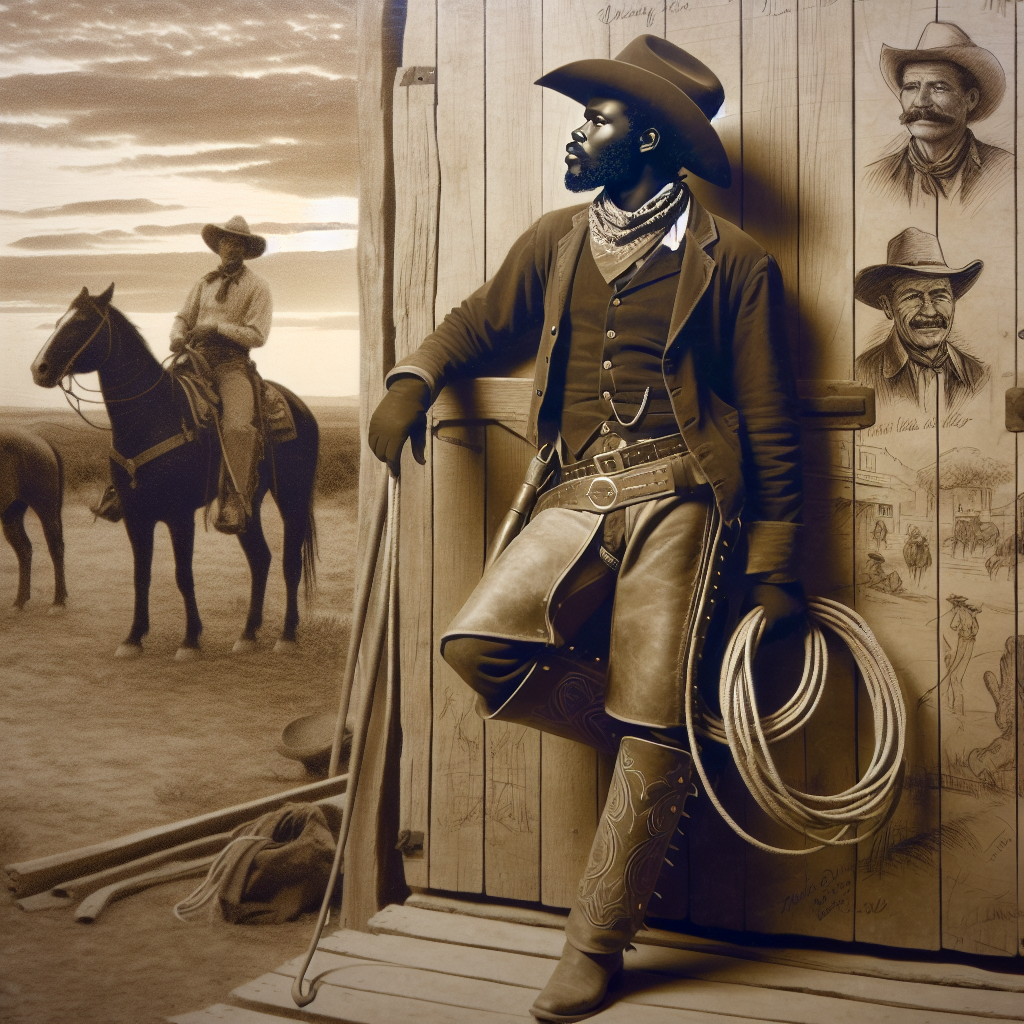The Lost Legacy of Black Cowboys in American History: Uncovering Their Impact
Introduction
When you think of cowboys, what comes to mind? Tall tales of heroic white hombres galloping into the sunset, right? Thanks to Hollywood, we’ve been fed a steady diet of “real” cowboys, adorned in their fine Stetsons and shiny boots. But here’s a shocking plot twist—Black cowboys played a massive role in shaping the American West, and their stories have been swept under the rug like a tumbleweed. Buckle up, folks, as we dig into the rich and often overlooked contributions of Black cowboys—because who wants a history lesson that’s not dripping with the sweat and grit of the real trailblazers?
Section 1: Historical Context of Black Cowboys
1.1 The Golden Age of Cowboys
Ah, the 19th century—the so-called golden age of the cowboy. Cattle ranching was booming, towns were springing up faster than you could say “Yeehaw,” and cowboys were the backbone of an expanding economy. But wait! It wasn’t just white men on horseback; enter Black cowboys, who brought their strength and skills to the cattle drives. Spoiler alert: they were a colorful part of the Western tapestry, yet somehow still get the short end of the stick in American narratives. Guess who wasn’t invited to the cowboy bonanza of glorification? That’s right—our Black brothers and sisters.
1.2 African Americans in the American West
After the Civil War, many African Americans headed westward, ditching the chains of oppression for a shot at freedom and economic independence. Thanks to land grants and the Homestead Act, they rolled up their sleeves, got their hands dirty, and dove headfirst into cowboy culture. But it seems the mainstream (read: whitewashed) history books missed a memo about how pivotal Black cowboys were to creating the Western we love—or think we know.
Section 2: Contributions of Black Cowboys to American History
2.1 Celebrated Black Cowboy Figures
Speaking of crucial figures, take Nat Love—better known as “Deadwood Dick.” The man roped like a pro and traveled the frontier with an adventurous spirit. And let’s not forget Bill Pickett, who literally invented bulldogging, a rodeo event that stands as a testament to his ingenuity. Who needs a whitewashed cowboy hero when Black cowboys were rewriting the rules?
2.2 Daily Life of Black Cowboys
Daily life for Black cowboys involved a lot of riding, roping, and cattle wrangling, just like their white counterparts. But here’s the kicker—while they were busy being badass, they were also battling the poison of racial discrimination. Picture this: trying to earn a living in a world that’s trying to erase you. Talk about a plot twist! Yet, against the odds, they fought for respect and recognition. Their resilience shines as a beacon of hope and defiance.
Section 3: Cultural Representation of Black Cowboys
3.1 Challenging Myths and Stereotypes
The narrative around cowboys has stubbornly favored the white cowboy stereotype. It’s almost as if they’re saying, “Black cowboys? Nah, let’s stick to the status quo.” But guess what? The truth doesn’t hide well when you shine a light on it. Challenging these myths not only elevates the truth but also begins the healing process. Spoiler alert: you can be a cowboy regardless of your hue!
3.2 Black Cowboys’ Impact on American Culture
The artistic contributions of Black cowboys are as rich as the colors of a desert sunset. From rodeo performances to intertwining their stories in genres like blues and folk, they injected life into the American cultural landscape. Their experiences are woven into the fabric of creativity that defines much of what we appreciate today. Sorry, mainstream—I think it’s time to print a history book that actually includes everyone, don’t you?
Section 4: Resilience and Resistance of Black Cowboys
4.1 Triumphing Over Adversity
Black cowboys faced systemic hellfire at every turn, and yet, they didn’t just survive—they thrived! Their journeys were marked by challenges, but they carved out space within the cowboy identity with sheer grit. It’s a narrative of collective resistance against attempts to erase their contributions, proving that you can’t silence history—especially when it’s so loud!
4.2 Recognizing Their Legacy
Let’s shine a spotlight on these unsung heroes, shall we? Despite their central role in shaping the cowboy legacy, they often go unrecognized in mainstream narratives. But don’t fret! A renaissance is underway. Documentaries, educational programs, and community efforts are helping reclaim this legacy, ensuring the stories of Black cowboys are shared and celebrated.
Section 5: The Legacy of Black Cowboys in Modern Society
5.1 Modern-Day Black Cowboys
Fast forward to today, and Black cowboys and cowgirls are still riding strong, refusing to let anyone pigeonhole them into false narratives. They’re not just icons of the past; they’re inspiring the next generation to embrace this undeniably rich legacy while flipping the script on outdated stereotypes. You have to love it!
5.2 Cultural Reclamation Initiatives
Diversity and inclusion are finally being acknowledged in spaces like rodeos and community events. The excitement is palpable as more people celebrate the contributions of Black cowboys. This isn’t just a better understanding of American history; it’s a celebration of complexity, and it’s high time we embraced it!
The Importance of Acknowledging Black Cowboys’ Contributions
So, what’s the bottom line? The contributions of Black cowboys to American history matter—like, really matter. They deserve recognition for their significant roles in shaping the cowboy narrative. By uncovering their lost legacy, we enrich our understanding of American culture and the power that comes from embracing every part of our history, unvarnished and true. So, dear reader, let’s hit the trail together, explore this untold history, and acknowledge the incredible impact of Black cowboys on the American West. Buckle up; it’s about to get real!



0 Comments